Q&A: Zangezur Corridor - geopolitical battleground for regional and global powers Iran opposes corridor; Russia, Türkiye, Azerbaijan push forward
The Zangezur Corridor, which seeks to establish a direct link between Azerbaijan’s Nakhchivan exclave and its mainland through Armenian territory, has become a focal point of geopolitical competition. Initially outlined in the November 10, 2020, trilateral agreement between Azerbaijan, Armenia, and Russia, this corridor is essential for Azerbaijan's entire region and the wider world. However, it has sparked controversy, especially from Iran, which considers the corridor a "red line". Russia, after a period of silence, has ramped up its support, likely influenced by the geopolitical shifts caused by the war in Ukraine. Other global actors, including the US and China, also have stakes in the project, making the Zangezur Corridor a critical junction in the international geopolitical landscape.
Q: What are the legal grounds for opening the Zangezur Corridor?
A: The legal basis for the Zangezur Corridor lies in the trilateral ceasefire agreement signed on November 10, 2020, between Azerbaijan, Armenia, and Russia, following the 44-day Nagorno-Karabakh war. This agreement includes a clause on opening regional communications, which implicitly refers to the Zangezur Corridor.
The aim was to restore transportation links across the region, including a direct route from mainland Azerbaijan to its Nakhchivan exclave. The agreement places Armenia under an obligation to facilitate the corridor, while Russia would be responsible for its security through peacekeepers. Despite the clarity of the agreement, Armenia has been hesitant to implement it fully, citing concerns over sovereignty and security. This has caused delays and disputes, leading to heightened tensions in the region.
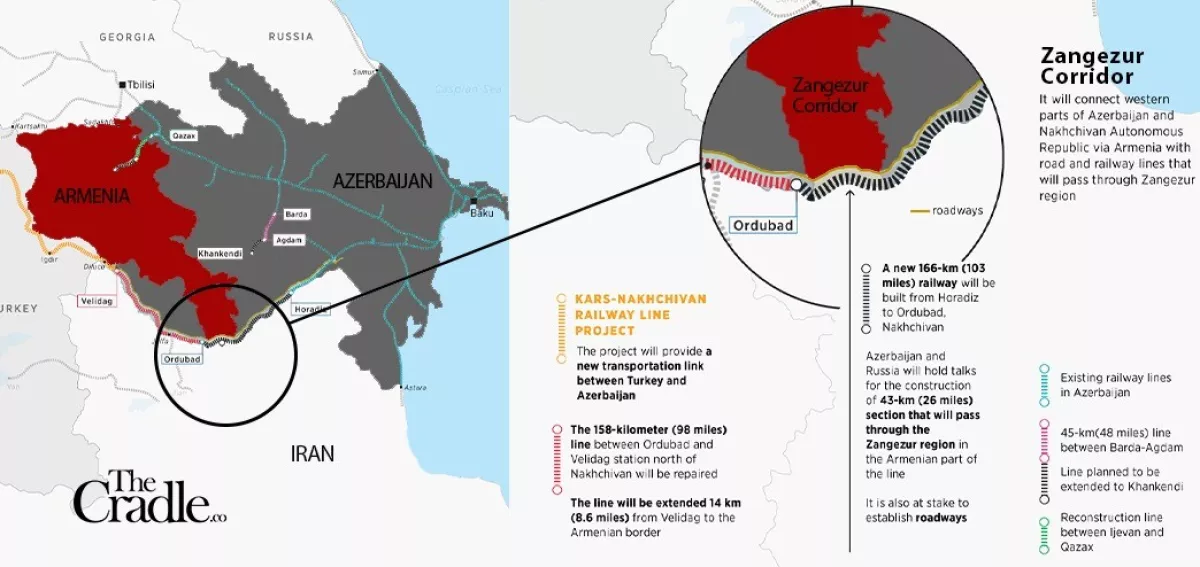
Q: Why is Iran opposed to the Zangezur Corridor and calling it a "red line"?
A: Iran’s opposition to the Zangezur Corridor stems from several geopolitical concerns. First, the corridor would reduce its geopolitical leverage in the South Caucasus by diminishing its role as a key transit country for Azerbaijan and Armenia. Currently, much of Azerbaijan’s connection to Nakhchivan passes through Iran. If the Zangezur Corridor opens, it would bypass Iranian territory, thereby weakening Iran’s economic and political influence in the region.
Secondly, Iran is wary of the strengthening of the Türkiye-Azerbaijan axis, which could challenge Tehran’s strategic interests in the region. Türkiye’s growing presence in the South Caucasus, alongside Azerbaijan’s rising power, poses a direct challenge to Iran’s regional ambitions. Furthermore, Iran perceives the corridor as a potential threat to its border security and territorial integrity, as it may allow foreign powers greater access to its northern borders.
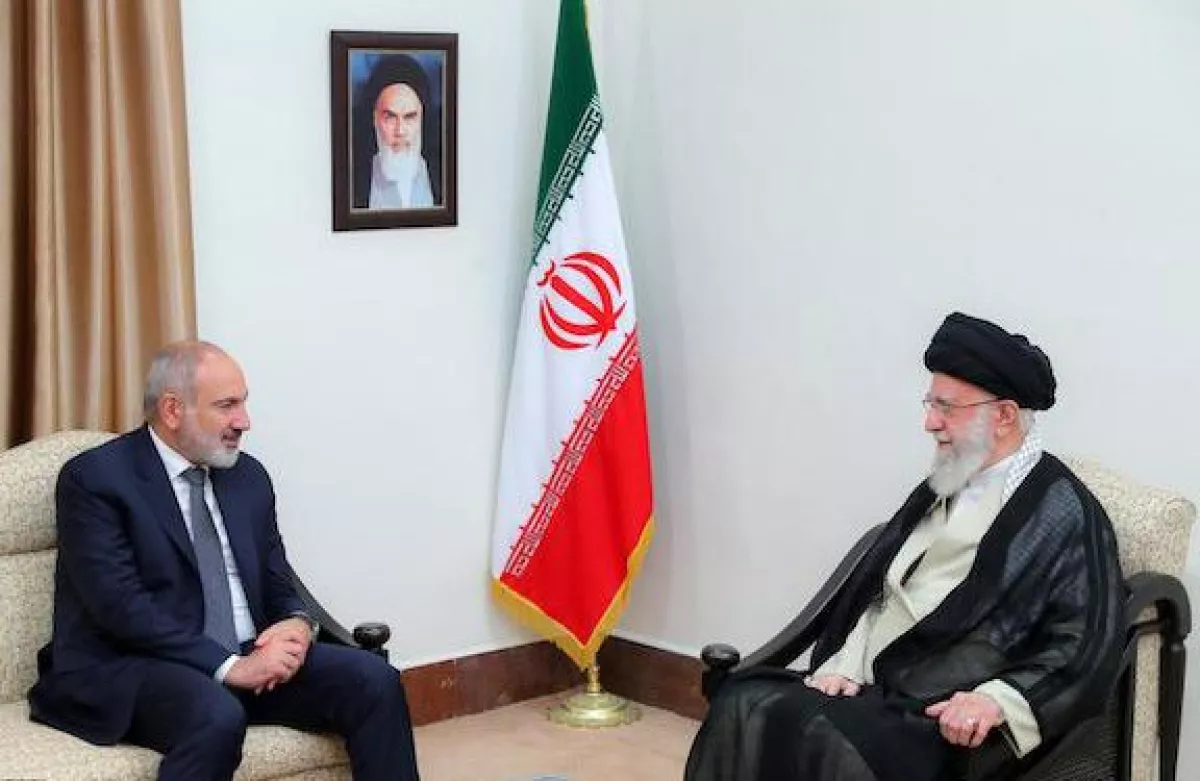
Q: What has led the Kremlin to change its stance from tacit support to outright backing of the corridor?
A: Russia's shift towards openly supporting the Zangezur Corridor can be attributed to the ongoing war in Ukraine and the subsequent isolation Moscow faces due to Western sanctions. As these sanctions have cut Russia off from many traditional trade routes, the country is increasingly looking for alternative transportation corridors that bypass Europe. The Zangezur Corridor offers a crucial link between Russia and the Middle East, as well as Southern Asia, via Azerbaijan and Türkiye.
This route could also provide Russia with access to the Mediterranean and the Persian Gulf, bypassing the sanctions bottlenecks. Furthermore, Russia has a vested interest in maintaining its influence in the South Caucasus, where it has historically been the dominant power. By backing the corridor, Moscow seeks to preserve its geopolitical influence in the region and ensure its participation in regional infrastructure projects that could potentially strengthen its economic ties with non-Western countries.
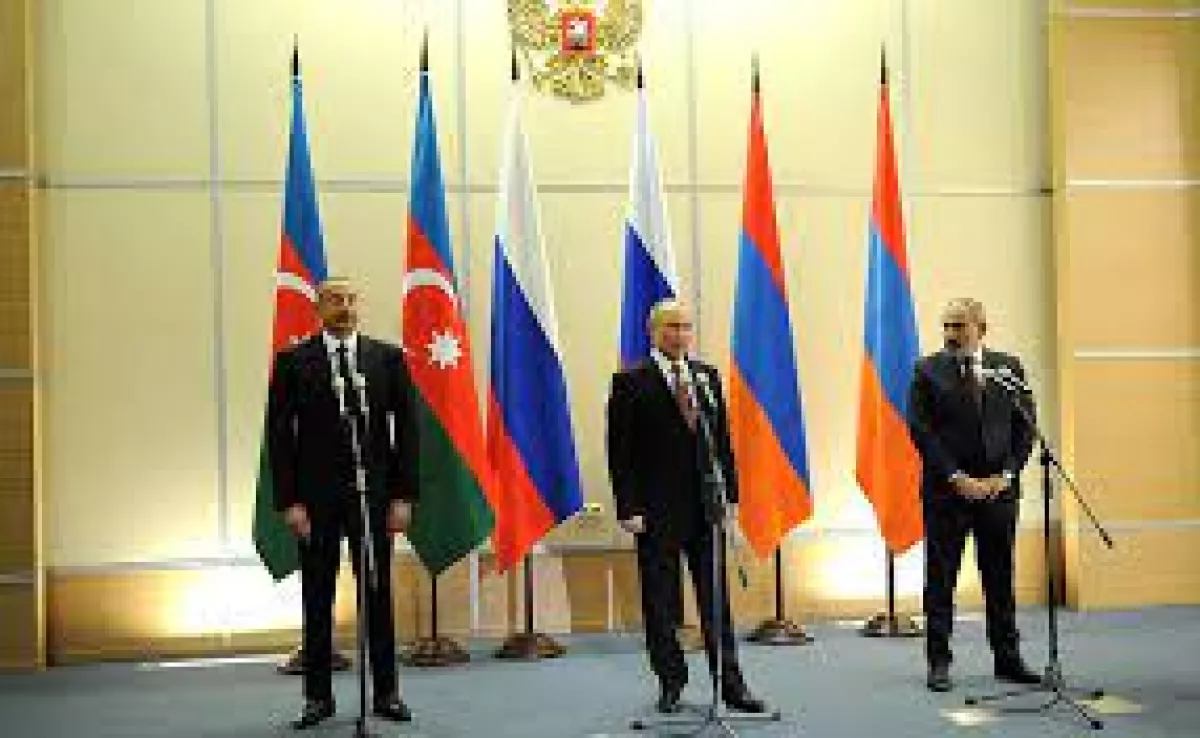
Q: Could the war in Ukraine be a major reason behind Russia’s renewed interest in the Zangezur Corridor?
A: The war in Ukraine has significantly influenced Russia’s renewed interest in the Zangezur Corridor. Facing unprecedented Western sanctions and isolation, Moscow is actively seeking new trade routes and alliances to circumvent these restrictions. The Zangezur Corridor offers an alternative transit route that connects Russia with the Middle East, Southern Asia, and potentially Africa. With its economy under strain, Russia sees this corridor as a lifeline that could facilitate trade and energy exports to countries in these regions.
Additionally, with Europe largely closed off to Russian goods and investments, the Zangezur Corridor would provide a direct connection to Türkiye, a country that has not fully joined Western sanctions against Moscow. This strategic importance explains Russia’s shift from passive support to active involvement in promoting the corridor’s opening.
Q: Is China backing the Zangezur Corridor as part of its Belt and Road Initiative?
A: While China has not explicitly endorsed the Zangezur Corridor, its strategic interests align with the project as it complements Beijing’s Belt and Road Initiative (BRI). China is keen to develop new trade routes that connect Europe and Asia, and the Zangezur Corridor fits into this larger framework. By facilitating connectivity across the South Caucasus, the corridor would enhance regional transportation networks that are crucial for China’s ambitions of creating a transcontinental infrastructure network.
Additionally, China has significant investments in both Azerbaijan and Türkiye, which would benefit from the opening of this corridor. However, China’s involvement in the corridor is more economic than political, as it carefully balances its relations with Iran, a staunch opponent of the project. Thus, while China supports infrastructure development in the region, it is likely to remain cautious in its direct involvement due to its wider geopolitical considerations.
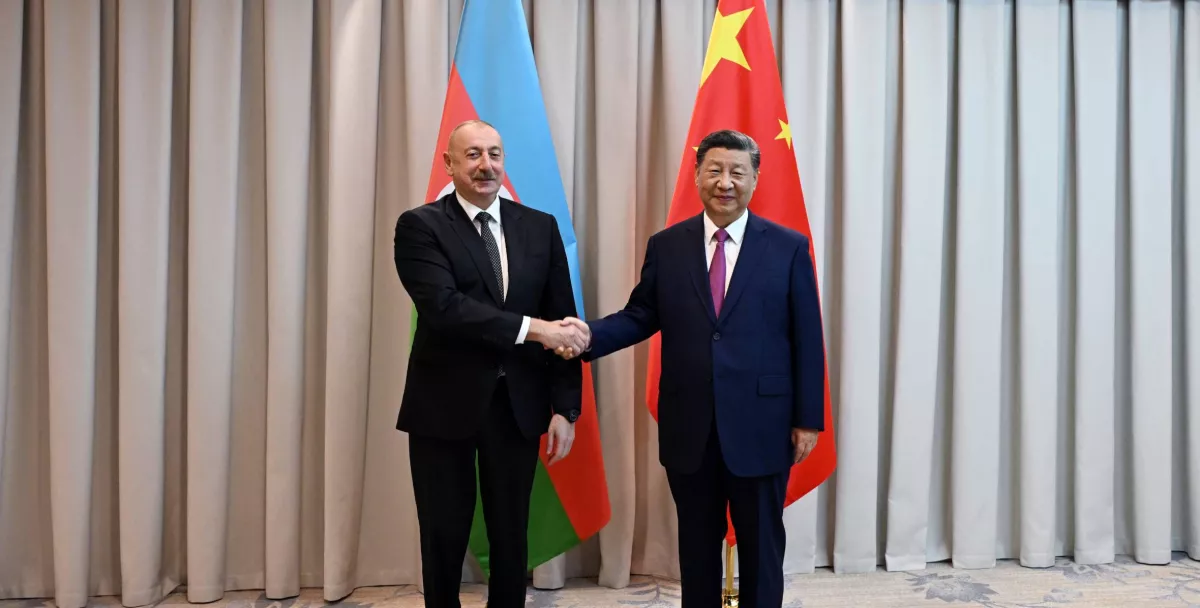
Q: Why does Iran appear to be the only regional power opposed to the Zangezur Corridor?
A: Iran’s opposition is rooted in its strategic calculations, as it sees the Zangezur Corridor as a threat to its regional dominance. For years, Iran has been a key player in the South Caucasus, especially in mediating and facilitating trade between Armenia and Azerbaijan. The opening of the Zangezur Corridor would reduce Iran’s importance as a transit country, as Azerbaijan would no longer need to rely on Iranian routes to access Nakhchivan.
Furthermore, the corridor strengthens the Türkiye-Azerbaijan alliance, which Iran perceives as a challenge to its influence in the region. Unlike Russia, Türkiye, or Azerbaijan, Iran sees the corridor as undermining its strategic interests rather than enhancing them. Additionally, Iran is concerned about potential shifts in the balance of power along its northern borders, where foreign actors could gain more influence.
Q: Is the US backing the Zangezur Corridor, as seen through recent statements by James O'Brien, Assistant Secretary of State for European and Eurasian Affairs?
A: The United States appears to support the Zangezur Corridor, particularly in the context of its broader geopolitical aims in the region. James O'Brien, a key US official, recently made remarks that suggest Washington views the corridor as a positive development for regional stability and economic growth. From the US perspective, the corridor not only facilitates trade between Europe and Asia but also weakens Russia’s hold over the South Caucasus.
By supporting the Zangezur Corridor, the US aims to enhance its influence in the region while curbing Russian dominance. Moreover, the corridor aligns with US interests in promoting regional integration, especially as it offers an alternative to Iranian-controlled routes. This fits within Washington’s broader strategy of isolating Iran and reducing its influence in the region. Hence, while the US has not explicitly championed the corridor, its strategic interests are clearly aligned with its opening.

Q: How does the Zangezur Corridor serve Azerbaijan’s interests?
A: For Azerbaijan, the Zangezur Corridor is of immense strategic importance. It provides a direct land link between mainland Azerbaijan and its Nakhchivan exclave, bypassing Armenia's current blockade. The corridor would facilitate easier access to Türkiye, Azerbaijan’s key strategic and economic ally, and enhance Baku’s role as a central player in the East-West trade routes.
Moreover, Azerbaijan sees the corridor as a vital step toward regional integration and economic development, not just for itself but also for Armenia and Türkiye. By opening this corridor, Azerbaijan strengthens its position as a major transit hub, connecting Europe and Asia. Additionally, the corridor allows Azerbaijan to reduce its reliance on Iran for transit routes, thereby enhancing its sovereignty and strategic autonomy in the region.
Q: What does Armenia stand to gain or lose from the Zangezur Corridor?
A: For Armenia, the Zangezur Corridor presents both opportunities and challenges. On the one hand, the corridor could lead to regional integration, economic growth, and normalization of relations with Azerbaijan and Türkiye. Opening the corridor would allow Armenia to benefit from increased trade and investment, as it becomes part of the broader East-West transportation network.
On the other hand, many in Armenia fear that the corridor could compromise the country’s sovereignty, as it would involve significant foreign presence and infrastructure development in a sensitive region. Furthermore, Armenia is under pressure from Iran, a key ally, which opposes the corridor. The Armenian government faces a difficult balancing act between reaping the potential economic benefits of the corridor and addressing the political and security concerns of its neighbors, particularly Iran and Russia.
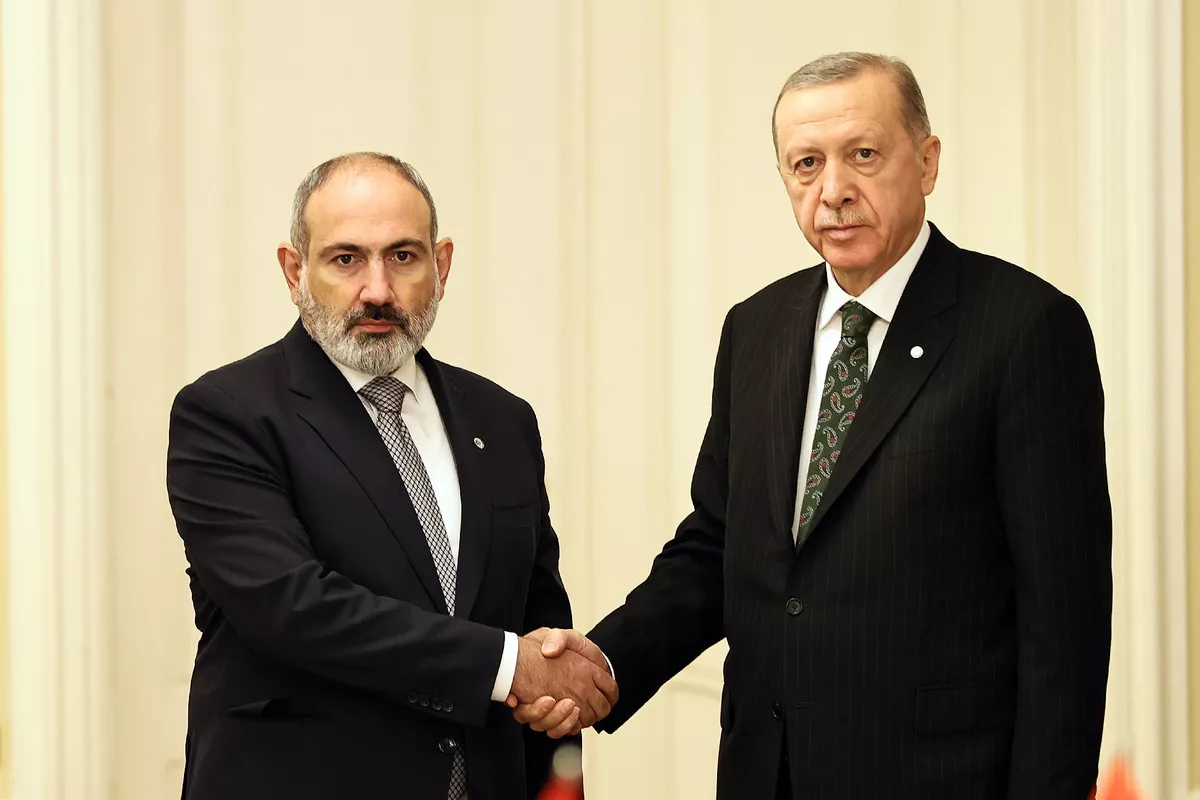
Q: How does Türkiye view the Zangezur Corridor in the context of its regional ambitions?
A: Türkiye sees the Zangezur Corridor as a critical part of its regional strategy. For Ankara, the corridor strengthens its ties with Azerbaijan and enhances its influence in the South Caucasus, a region where Türkiye has historical, cultural, and economic interests. The corridor also fits within Türkiye’s broader ambitions of becoming a key player in Eurasian geopolitics by controlling important transportation routes that connect Europe, Asia, and the Middle East.
Additionally, Türkiye views the corridor as a way to bypass Iran and gain greater access to Central Asian markets, further solidifying its position as a regional powerhouse. By supporting the Zangezur Corridor, Türkiye not only strengthens its alliance with Azerbaijan but also positions itself as a central actor in shaping the future of the region.








